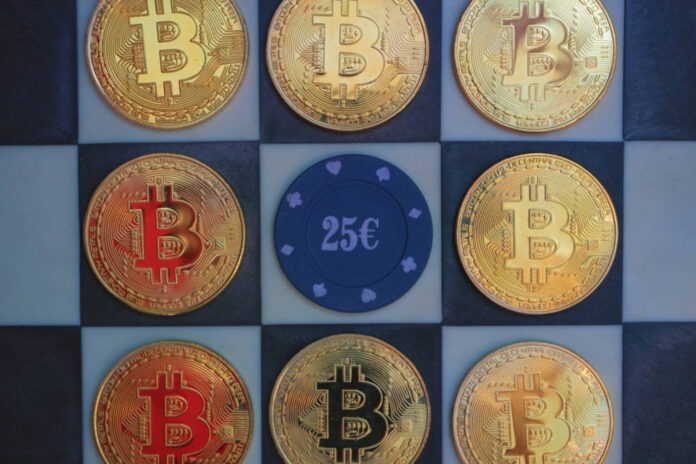
The current CEO of Block, formerly called Square, sparked some crypto news when he positively responded to popular Grammy award-winning rapper Cardi B, some days before Christmas on if bitcoin is powerful enough to replace the US Dollar. Jack Dorsey, who is known for his social media platform Twitter and his executive role with Block, gave a short but succinct response to the American rapper’s question. The question was expected, seeing the government’s printing of money into oblivion, and the realization that inflation isn’t transitory as initially believed. The whole conversation left some impressions on social media but showed a few things;
- The world’s support for Bitcoin is largely underrated
- Jack Dorsey’s support for Bitcoin has not flinched since he started supporting it in 2017
- Crypto adoption has been increasing in leaps and bounds in the secular space.
Many reactions ensued with many crypto supporters following the conversation as many bitcoin bulls introduced themselves in a characteristic fashion. Dennis Porter, a popular crypto podcaster, replied under Jack’s tweet that it is inevitable to have such discussions. Jack Dorsey left Twitter in late 2021 to focus on Block. He announced some months prior to that time that Block is making plans to build a bitcoin mining system that will operate on open source and custom silicon ideas.
This way, Block will improve their cryptocurrency stance with their prior projects of having a hardware wallet and an open developer platform, laying the foundation for the future.
Bitcoin vs the US dollar. Is it the right comparison?
Many people indeed have questions on bitcoin’s relevance in world finance and if it can have as much reached as the US dollar. While Bitcoin, or cryptocurrencies in general, have seen widespread adoption, the road to being weighed with the dollar is far. In the short term, bitcoin will not replace the dollar, but could we see a twist in events over the long term? Let’s see some reasons for and against that.
- Before a currency or token can be accepted as money, it must be accepted by the majority as a viable means of exchange. We have seen countries like China, Egypt, Nigeria, and Iran come with the sharp end of the stick at the broad crypto market in the past year. Despite this, we have seen peer-to-peer trades blossom in these parts of the world. And the emergence of DeFi lays waste the laws from these governments, and it is possible to convert your token to cash without neither your bank nor your spouse (if any) knowing. . moving away from the hype surrounding digital currencies and Bitcoin, having the means to foster swift, cheap, and transparent cross-border payment has helped Bitcoin in its popularity. It may not be regarded as a means of value exchange now, but Watch out Dollar!! A new kid is on the Block.
- The concept of a legal tender is premised around price stability and supply. Economies of nations are never linear, and while they are hugely manipulated, they wouldn’t still be linear if they weren’t. The laws of demand and supply are as real as the laws of gravity. Still, their unpredictability means there needs to be an oversight on regulating the supply of any currency used in the economy. Having a fixed supply of money during a catastrophe, like a coronavirus or a hurricane, will neither be good for citizens who have no means to earn nor for the economy. In the same way, having a fixed supply in an inflated economy will do nothing to reduce inflation. Bitcoin’s fixed supply of 21 million might be good in driving its price up as more people come to accept cryptocurrencies, but replacing the US dollar? That seems farfetched
- The bitcoin PR has been amazing, to be honest. Coming with the bitcoin vs. dollar argument appeals to people’s distaste for the US dollar, and calling it the new gold has been useful for conservatives who would like an alternative to hedge the dollar. The US dollar has been touted as a sponsor of wealth inequality, with the bitcoin token seen as the savior of the masses. This seems true until one delves into statistics on bitcoin ownership. According to a study from the National Bureau of Economic Research (NBER), 27% of the world’s largest token’s circulating supply is held by 0.01% of the bitcoin investors. This research has put pay on Bitcoin’s ability to bridge the gap between the rich and the poor.
If the bitcoin vs dollar fight is too young, why the hype?
Like the US dollar, Bitcoin can be traded on different platforms, with each offering different perks and features. The race for the best trading platform has since cooled down, but the features of security, ease of use, and speed have defined most of the current exchanges. Bitcoin has been popular because, apart from being an investment vehicle, its volatility can be exploited to make profits.
Like every revolutionary invention, the internet, the dot.com age, the industrial revolution, and even aircraft, the hype has been a crucial part of its sustainability. Bitcoin might not overtake the dollar, but the position it would hold in world finance is not one to be lightly esteemed. This role is perhaps what Jack Dorsey and other crypto bulls saw and made them have unrelenting support for bitcoin. Jack Dorsey, in particular, might have been reserved in other areas of his life, but he has been very vocal about his support for bitcoin since 2017. He recently just released the whitepaper for a decentralized exchange, the tbDEX, to rival already prominent ones like Binance, Coinbase, Redot.com, and OKX.

